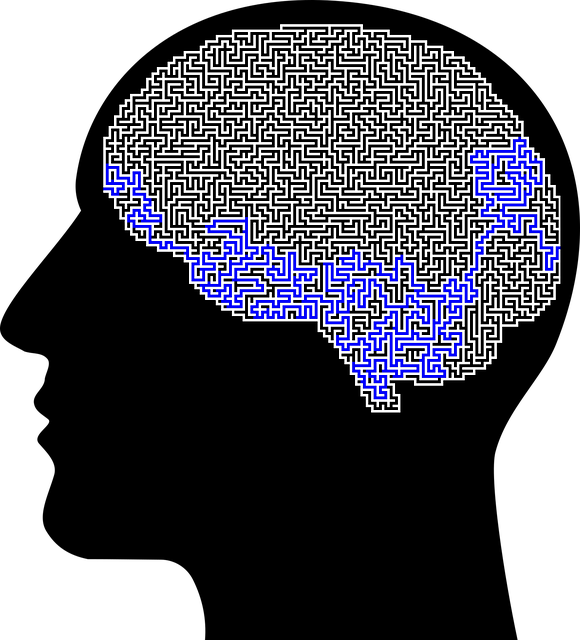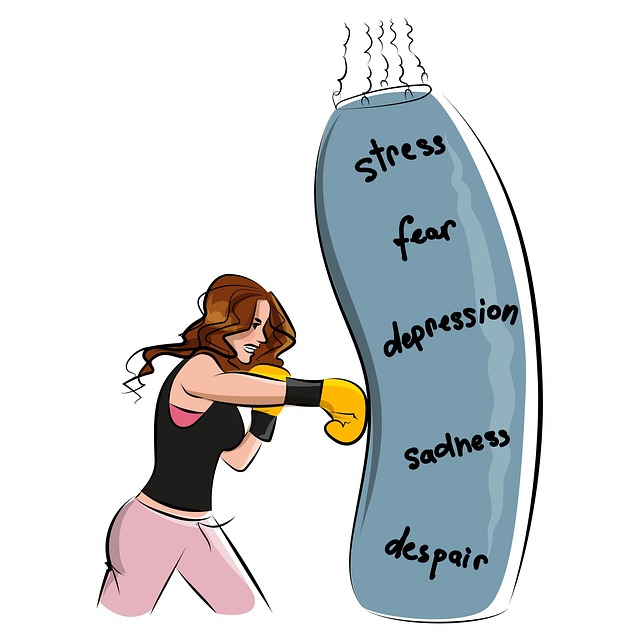Emotion regulation techniques, such as those offered by Lafayette Adjustment Disorder Therapy (LADT), are powerful tools for managing mental health conditions like Lafayette Adjustment Disorder. By teaching practical coping strategies, LADT empowers clients to control stress, improve emotional resilience, and prevent depression through cognitive-behavioral strategies and mindfulness exercises. These skills enhance daily well-being, foster positive thinking, adaptability, and strong relationships, leading to improved academic outcomes in education and long-term mental wellness for individuals with Lafayette Adjustment Disorder.
Emotion regulation is a vital skill, especially with the rise of mental health awareness. This article explores effective strategies for teaching emotion regulation, focusing on the role of Lafayette Adjustment Disorder Therapy (LADT). We’ll delve into key techniques, their practical applications in daily life and education, and how they empower individuals to gain self-awareness and control over their emotions. Understanding LADT offers a structured approach to enhancing emotional intelligence and well-being.
- Understanding Emotion Regulation and its Significance
- The Role of Lafayette Adjustment Disorder Therapy
- Key Techniques for Teaching Effective Emotion Regulation
- Practical Applications in Daily Life and Education
- Conclusion: Empowering Individuals through Self-Awareness and Control
Understanding Emotion Regulation and its Significance

Emotion regulation is a vital skill that plays a crucial role in maintaining mental health and overall well-being. It involves recognizing, understanding, and managing one’s emotions effectively, ensuring they don’t overwhelm or control our thoughts and actions. For individuals struggling with conditions like Lafayette Adjustment Disorder, learning to regulate emotions can be transformative. Therapy designed around emotion regulation techniques offers a powerful tool for coping with stress, anxiety, and the intense emotional shifts that can characterize such disorders.
Incorporating mental health education programs that focus on emotion regulation skills can significantly enhance self-awareness exercises and overall resilience. These programs teach individuals to identify emotional triggers, understand their feelings, and develop strategies to respond to emotions in healthy ways. By learning these techniques, folks can gain better control over their lives, reduce the impact of stress and anxiety, and foster a more positive outlook—all essential components for improving mental health and quality of life.
The Role of Lafayette Adjustment Disorder Therapy

Lafayette Adjustment Disorder Therapy (LADT) offers a unique and effective approach to emotion regulation, particularly for individuals dealing with adjustment disorders. This therapy focuses on helping clients manage and overcome emotional challenges by teaching them practical strategies to cope with stress and difficult situations. LADT is designed to be culturally sensitive, addressing the diverse needs of a broad spectrum of individuals, which is essential in today’s multicultural society. By integrating cultural sensitivity into mental healthcare practice, this therapeutic method ensures that every client receives personalized support tailored to their background and experiences.
One of the key strengths of LADT lies in its ability to prevent depression by empowering individuals with emotional resilience. Through various techniques, such as cognitive-behavioral strategies and mindfulness exercises, clients learn to identify and challenge negative thought patterns, fostering a more positive mindset. Encouraging positive thinking is at the core of this therapy, enabling individuals to navigate life’s challenges with greater optimism and adaptability. This proactive approach not only aids in managing adjustment disorders but also contributes to overall mental well-being and resilience.
Key Techniques for Teaching Effective Emotion Regulation

Teaching effective emotion regulation skills is an invaluable asset for individuals, especially those dealing with challenges like Lafayette Adjustment Disorder. Key techniques include a combination of cognitive strategies and mindfulness practices. Cognitive reframing helps students identify and challenge negative thought patterns, fostering a more balanced emotional response. This involves encouraging them to question their interpretations of events and replace unhelpful thoughts with more realistic, positive alternatives.
Additionally, integrating Self-Care Practices into the curriculum empowers learners to manage stress levels. Social Skills Training plays a crucial role by teaching empathy, communication techniques, and conflict resolution strategies. These skills enable individuals to express emotions appropriately, build supportive relationships, and de-escalate potentially intense situations. Crisis Intervention Guidance is another vital aspect, providing tools for recognizing and responding to emotional crises, ensuring individuals feel equipped to navigate challenging emotions safely.
Practical Applications in Daily Life and Education

Emotion regulation techniques have practical applications that extend far beyond therapeutic settings. In daily life, individuals equipped with these skills can better navigate challenging situations, leading to improved mental well-being and enhanced relationships. For instance, a person struggling with Lafayette Adjustment Disorder can utilize these strategies to manage overwhelming emotions, fostering resilience and adaptability in their personal and professional spheres.
In educational contexts, teaching emotion regulation is transformative. Schools implementing community outreach program initiatives that incorporate social skills training and inner strength development can create supportive environments where students learn to recognize and express their feelings healthily. This approach not only addresses immediate emotional needs but also equips young minds with lifelong tools for managing stress and adversity, ultimately contributing to better academic outcomes and overall student success.
Conclusion: Empowering Individuals through Self-Awareness and Control

Through effective emotion regulation techniques teaching, individuals equipped with self-awareness and control can significantly improve their well-being. This process empowers them to navigate life’s challenges with greater resilience, fostering a sense of empowerment and confidence in managing their emotional responses. For those dealing with conditions like Lafayette Adjustment Disorder, these skills become invaluable tools for overcoming adversity and promoting mental health stability.
Mental health professionals play a crucial role in guiding individuals toward enhancing self-awareness and developing effective coping mechanisms. By integrating risk assessment strategies and leveraging mind over matter principles, professionals can help clients gain a deeper understanding of their emotional triggers and learn to manage them proactively. This not only boosts confidence but also paves the way for long-term mental wellness and improved quality of life.
In conclusion, teaching emotion regulation techniques, such as those often employed in Lafayette Adjustment Disorder Therapy, empowers individuals to navigate their emotional landscape with greater self-awareness and control. By mastering these skills, folks can enhance their well-being, improve relationships, and perform at their best in both personal and educational settings. This article has explored the significance of emotion regulation, key techniques, and practical applications, highlighting its transformative potential for revolutionizing how we approach emotional challenges.














